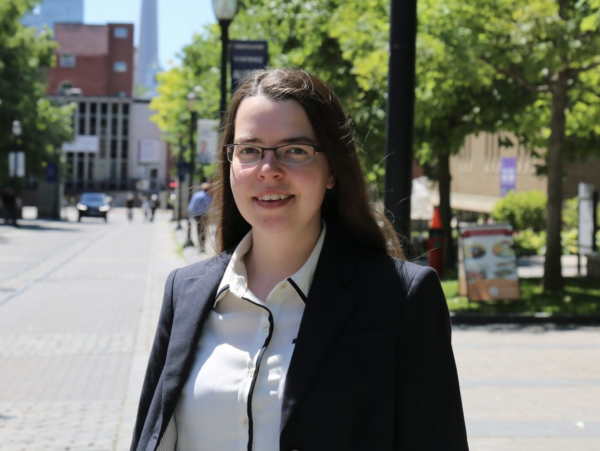TORONTO, May 6, 2021 − Canadian regulations for those entering Canada include a mandatory hotel stay for air travellers upon landing and, like any indoor space, these need stricter safety guidelines including N95 masks and safe ventilated eating areas for workers, says York University ventilation expert and mechanical engineering professor Marina Freire-Gormaly. Preventing transmission in isolation facilities can help prevent recent outbreaks in hotels like those that house quarantined travellers, says Freire-Gormaly, an assistant professor in the Department of Mechanical Engineering, Lassonde School of Engineering.
Her team’s research demonstrates that aerosols are present when we cough, and from leakage from masks, and in order to prevent these hotels from becoming “superspreaders,” Freire-Gormaly says hotel management should provide both hotel workers and guests with N95 mask or KN95 masks to minimize the risk of transmission and prevent outbreaks.
“Hotel management should also ensure hotel workers have a safe and well-ventilated eating facility to minimize the risk of staff spreading any illnesses with one another. Staff should be encouraged to eat alone and well distanced from other workers because when we eat and talk, there are a lot more droplets and aerosols produced.”
She adds that facilities should be following the most up-to-date ASHRAE guidelines for improved HVAC for indoor spaces and Public Health guidelines on HVAC. Her team’s research on isolation areas in hospitals shows when aerosols and droplets of a patient’s cough gravitate toward exhaust areas, any equipment in those areas would also get a higher proportion of contaminated aerosols and droplets.
“Therefore, the equipment would be best located far away from these exhaust locations and for hospital cleaning staff, they should be trained for disinfecting these areas with higher frequency and while wearing all the necessary personal protective equipment.”
Professor Freire-Gormaly can also speak about:
- Why is HVAC in these areas critical? Role of HVAC audits in reducing transmission in quarantine hotels
- Why hotel workers should be provided with N95 masks, gloves and face shields
- The benefits of training on how to minimize worker risk of catching COVID-19 from guests by proper sanitation, social distancing and proper use of personal protective equipment
- Importance of and methods for conducting an HVAC audit of facilities to ensure the most up-to-date guidance from ASHRAE on upgrading facility HVAC is followed
- What research shows about aerosol paths and why staff should be encouraged to eat alone and well distanced from other workers
- Isolation areas in hospitals: why equipment in areas around exhausts are targets for higher proportion of contaminated aerosols and droplets and the need for proper disinfection
York University is a modern, multi-campus, urban university located in Toronto, Ontario. Backed by a diverse group of students, faculty, staff, alumni and partners, we bring a uniquely global perspective to help solve societal challenges, drive positive change and prepare our students for success. York's fully bilingual Glendon Campus is home to Southern Ontario's Centre of Excellence for French Language and Bilingual Postsecondary Education. York’s campuses in Costa Rica and India offer students exceptional transnational learning opportunities and innovative programs. Together, we can make things right for our communities, our planet, and our future.
Media Contact:
Anjum Nayyar, York University Media Relations, cell 437 242 1547, anayyar@yorku.ca


